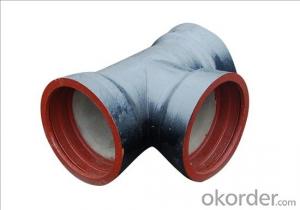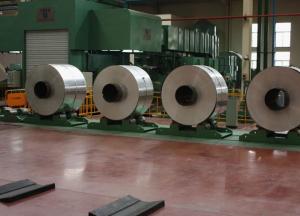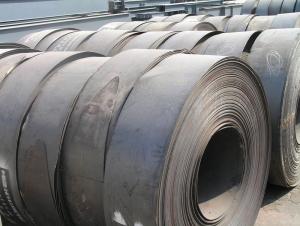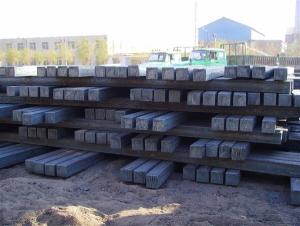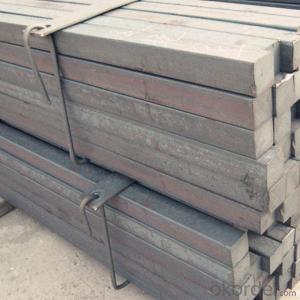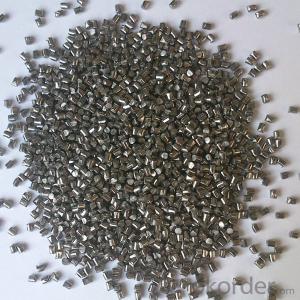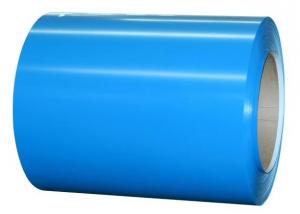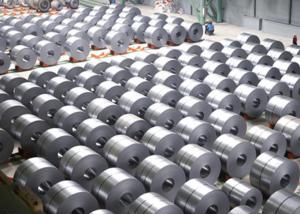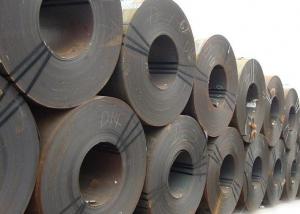DI pipe fitting DN300 double socket flange tee
- Loading Port:
- Tianjin
- Payment Terms:
- TT OR LC
- Min Order Qty:
- 100 kg
- Supply Capability:
- 10000 kg/month
OKorder Service Pledge
OKorder Financial Service
You Might Also Like
DI pipe fitting DN300 double socket flange tee
Function: for water delivery.
standards | ISO2531, EN545 , EN598 , AWWA C110 , AWWA C153. |
material | Ductile iron. |
Coating | Fusion bonded epoxy coating cement lining inside and zinc primer and bitumen painting outside |
Package | wooden cases ,wooden pallets, steel crates |
accessories such as gaskets , bolts and nuts available upon request | |
Packaging & Delivery
| Packaging Detail: | cases,pallets or as per customers' requirements |
| Delivery Detail: | 20-30 days after order |
Specifications
all flanged tee/di pipe fittings
1,Standards : ISO2531, ISO4422, EN545 , EN598 , BS4772 , AWWA C110
2,material : GGG500-7 or o
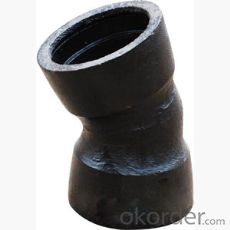
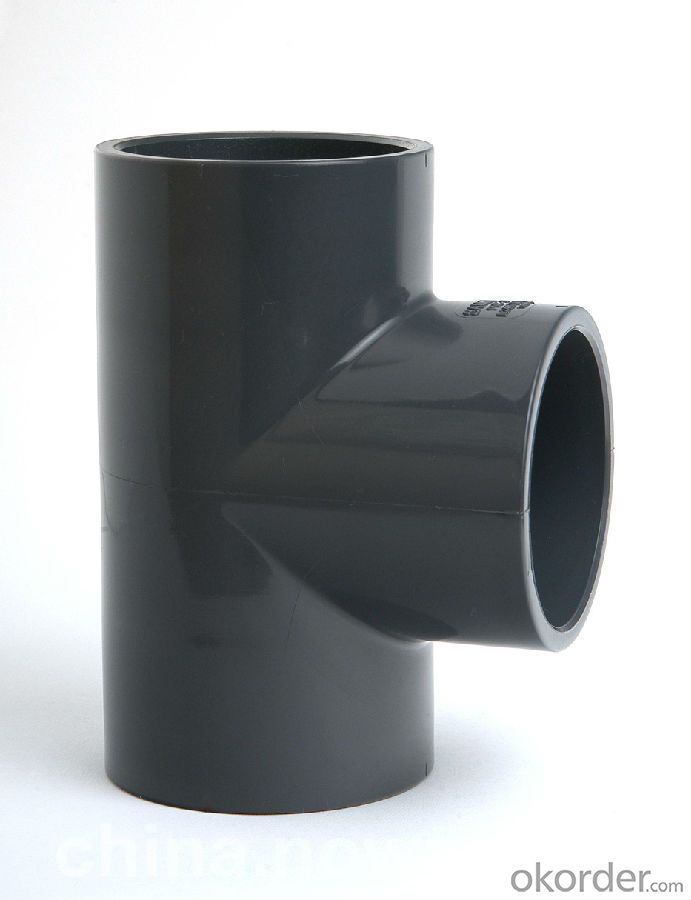
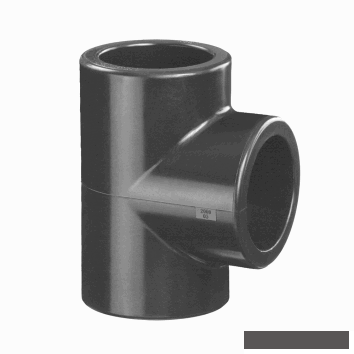
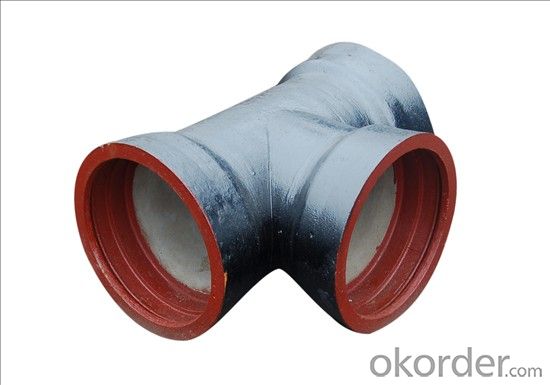
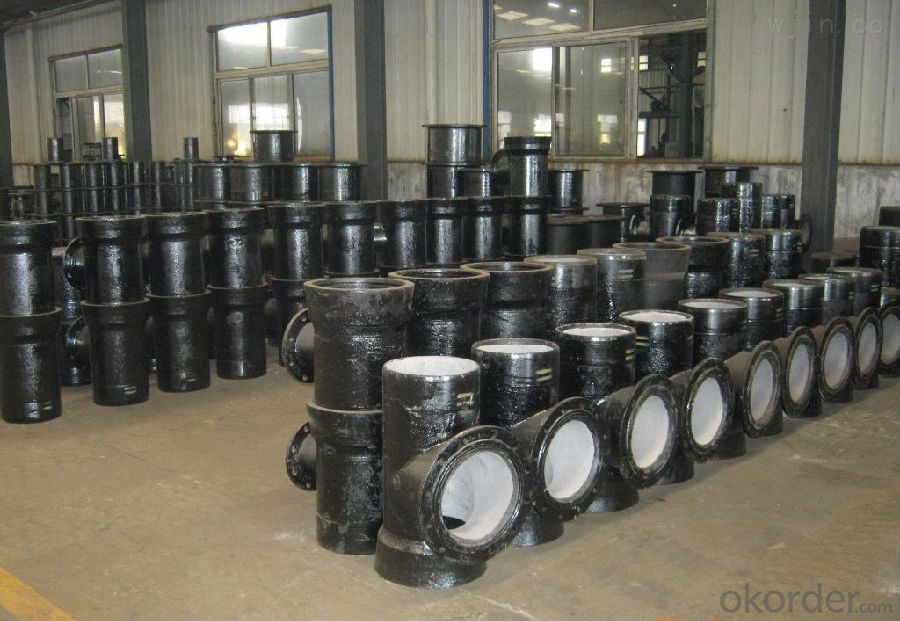

CNBM International Corporation (CNBM International) is the most important trading platform of CNBM Group Corporation, a state-owned company under the direct supervision of State-owned Assets Supervision and Administration Commission of the State Council.
CNBM International is highly recognized by its business partners and clients all over the world and has obtained rapid development under the spirit of win-win. We will carry on the mutual beneficial, innovative and revolutionary trading structure as we did before, create value for our employees, share holders and clients and benefit the whole society in our future development.
- Q:What are the different types of steel meshes and their uses?
- There are various types of steel meshes available, each with its specific uses. Some common types include welded wire mesh, expanded metal, and woven wire mesh. Welded wire mesh is created by welding intersecting wires to form a grid pattern, commonly used in construction, fencing, and industrial applications. Expanded metal is produced by cutting and stretching a flat metal sheet, offering strength and versatility for applications like walkways, grating, and filtration. Woven wire mesh involves weaving wires together, resulting in a flexible and durable material used in screens, sieves, and security applications. These different types of steel meshes cater to a wide range of uses in different industries based on their specific characteristics and properties.
- Q:How is steel used in the production of construction machinery?
- Steel is commonly used in the production of construction machinery due to its high strength and durability. It is used to manufacture various components, such as frames, buckets, blades, and tracks, which require the ability to withstand heavy loads and harsh working conditions. Additionally, steel's malleability allows for easy shaping and forming of complex parts, enhancing the overall performance and reliability of construction machinery.
- Q:How can steel products be protected from corrosion?
- Steel products can be protected from corrosion through various methods such as applying protective coatings like paint or galvanizing, using corrosion-resistant alloys, implementing cathodic protection systems, maintaining proper drainage and ventilation, and regular cleaning and maintenance to remove any corrosive substances.
- Q:How are steel beams used in construction?
- Steel beams are commonly used in construction to provide structural support and stability to buildings and infrastructure. They are often used as load-bearing elements in the construction of walls, floors, and roofs, and they can also be used as columns or braces. Steel beams are preferred due to their high strength, durability, and versatility, allowing for the construction of larger, more complex structures.
- Q:How is steel produced?
- Steel is primarily produced through a process called basic oxygen steelmaking, where iron ore is converted into liquid iron and then further refined by removing impurities and adding alloying elements to achieve desired properties. This is done by combining iron ore, limestone, and coke in a blast furnace, followed by a refining process using oxygen to remove impurities and adjust the carbon content. The resulting molten iron is then poured into molds, solidified, and processed into various forms of steel.
- Q:What are the applications of steel forgings in the automotive industry?
- Steel forgings have a wide range of applications in the automotive industry. They are commonly used in critical components such as engine parts, transmission gears, steering systems, suspension components, and axles. Steel forgings offer exceptional strength, durability, and resistance to wear and tear, making them ideal for withstanding the demanding conditions of automotive operations. Additionally, their precise shaping and dimensional accuracy contribute to improved performance, safety, and fuel efficiency in vehicles.
- Q:What are the factors to consider when choosing the right steel product for a specific application?
- When choosing the right steel product for a specific application, several factors need to be considered. These factors include the required strength and durability, corrosion resistance, cost-effectiveness, ease of fabrication and installation, availability, and environmental impact. Additionally, factors such as weight, aesthetics, and compatibility with other materials or systems may also play a role in the decision-making process. Overall, understanding the specific requirements of the application and evaluating the various characteristics of different steel products is crucial in making an informed choice.
- Q:What are the different grades of steel used in various industries?
- There are several different grades of steel used in various industries, each with its own unique properties and applications. Some common grades include carbon steel, stainless steel, alloy steel, tool steel, and high-speed steel. Carbon steel is widely used due to its strength and affordability, while stainless steel is valued for its corrosion resistance. Alloy steel contains additional elements to enhance its strength and durability, making it suitable for applications in industries like automotive and aerospace. Tool steel is commonly used in the manufacturing of cutting tools, while high-speed steel is preferred for applications requiring high cutting speeds. Overall, the choice of steel grade depends on the specific requirements and demands of each industry.
- Q:What are the applications of steel plates?
- Steel plates have a wide range of applications, including construction of buildings, bridges, and roads, manufacturing of machinery and equipment, shipbuilding, and automotive industry. Additionally, they are used in the energy sector for building power plants and pipelines, as well as in the aerospace industry for manufacturing aircraft components.
- Q:What are the different types of steel tanks and vessels available?
- There are several different types of steel tanks and vessels available, including storage tanks, pressure vessels, mixing tanks, fermenters, and reactor vessels. Each type is designed for specific applications and varies in size, shape, and functionality to meet different industry needs.
1. Manufacturer Overview |
|
|---|---|
| Location | |
| Year Established | |
| Annual Output Value | |
| Main Markets | |
| Company Certifications | |
2. Manufacturer Certificates |
|
|---|---|
| a) Certification Name | |
| Range | |
| Reference | |
| Validity Period | |
3. Manufacturer Capability |
|
|---|---|
| a)Trade Capacity | |
| Nearest Port | |
| Export Percentage | |
| No.of Employees in Trade Department | |
| Language Spoken: | |
| b)Factory Information | |
| Factory Size: | |
| No. of Production Lines | |
| Contract Manufacturing | |
| Product Price Range | |
Send your message to us
DI pipe fitting DN300 double socket flange tee
- Loading Port:
- Tianjin
- Payment Terms:
- TT OR LC
- Min Order Qty:
- 100 kg
- Supply Capability:
- 10000 kg/month
OKorder Service Pledge
OKorder Financial Service
Similar products
New products
Hot products
Related keywords
